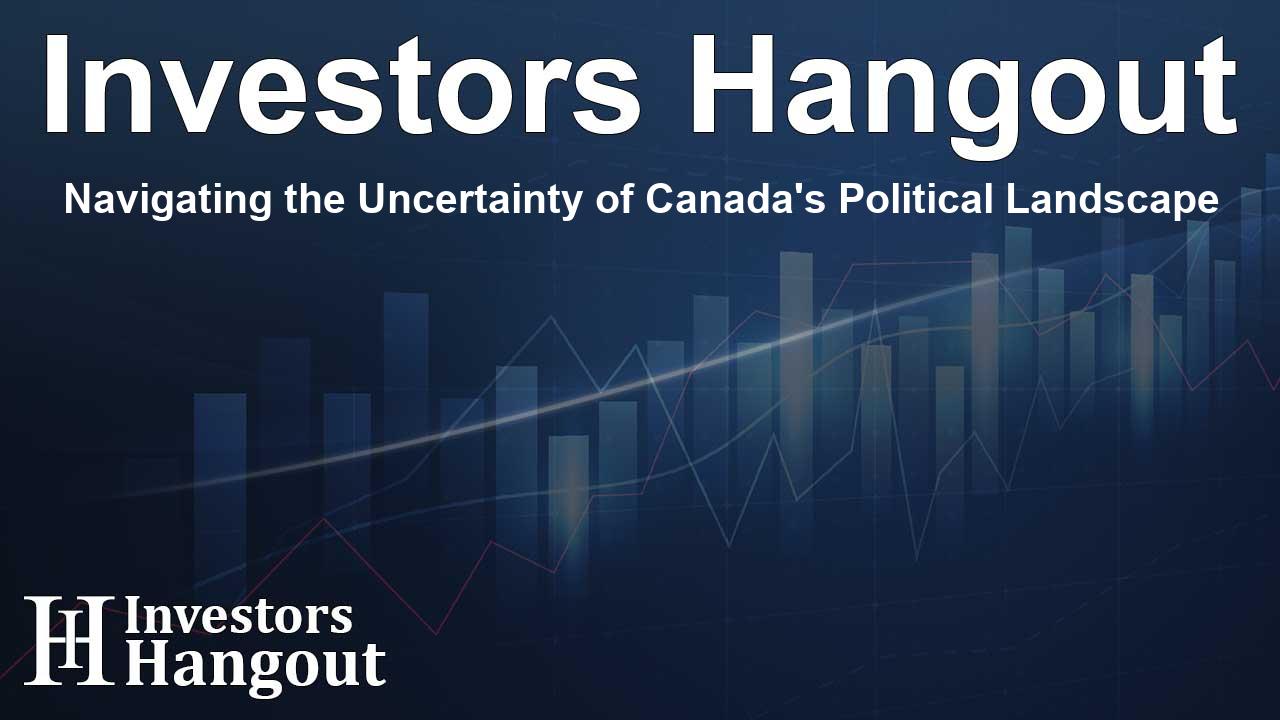Navigating the Uncertainty of Canada's Political Landscape

Understanding the Political Crisis in Canada
Recently, the political climate in Canada has shifted drastically. The leader of a key political party has voiced intentions to support a motion of no-confidence against Prime Minister Justin Trudeau. This motion threatens to bring down the Liberal government, leaving Trudeau's future in jeopardy.
What Would Happen If Trudeau Steps Down?
If Trudeau were to resign, the Liberal Party would need to appoint an interim leader to assume the role of prime minister while organizing a leadership convention. However, these conventions are often time-consuming and could leave the Liberals vulnerable if an election is called during this period. It’s an unusual situation that the party might find itself in—being led by a temporary leader selected under such constraints.
Can the Liberal Party Remove Trudeau?
Unlike political systems in some other countries, where party members can swiftly remove their leader, the Liberal Party's leadership selection involves a broader member convention. This means that, even if discontent grows among party members and politicians, removing Trudeau isn’t a straightforward process unless he chooses to step back.
The Role of Parliament in Trudeau's Fate
Confidence from the House of Commons is essential for any Canadian government to function. Votes related to budgets or expenditures are critical confidence measures, and losing one can precipitate a fall of the government. This means that an immediate election would likely ensue should the government lose such a vote. However, the House is currently in recess until late January, delaying any potential motions of no-confidence until at least February.
Constitutional Power and Trudeau's Position
The Governor General holds significant constitutional power but tends to act in line with parliamentary procedures and the prevailing political confidence. In practical terms, the removal of a sitting prime minister without a significant loss of support from the House of Commons is extremely unlikely.
Strategies for Trudeau's Survival
As it stands, Prime Minister Trudeau's government operates as a minority and requires support from other parties to pass legislation. Historically, he has relied on the backing of the New Democrats, yet their patience seems to be waning. Meanwhile, the Bloc Quebecois has signaled that they would back a no-confidence vote against him. His political survival hinges on his ability to navigate these relationships swiftly and effectively.
Potential Moves to Prevent Ouster
One strategy Trudeau might consider is proroguing Parliament, which would conclude the current session and provide him and his government with some respite from immediate challenges. This tactic would allow Trudeau to delay discussions around a no-confidence motion and potentially regroup with a new agenda. However, such a move might spark further dissent among Liberal party members and allies, especially if they perceive it as a stalling tactic.
Conclusion
The political landscape surrounding Prime Minister Justin Trudeau is intricate and fraught with difficulties. How he navigates this potential leadership crisis could redefine Canadian politics for years to come. It's a wait-and-see situation, but one that carries significant implications for all Canadians.
Frequently Asked Questions
What is the current political situation regarding Trudeau?
Trudeau faces a potential no-confidence motion that could lead to the removal of the Liberal government.
What would happen if Trudeau resigned?
An interim leader would be appointed until a leadership convention could be held—but this process could take time, leaving the party vulnerable.
How can the Liberal Party remove Trudeau?
The Liberal Party's leadership process requires a special convention, meaning removal is not simple or quick.
What role does the House of Commons play?
The government must maintain the confidence of the House; losing a confidence vote can trigger an immediate election.
How might Trudeau attempt to delay a no-confidence vote?
He could prorogue Parliament to pause current proceedings but this could also generate discontent within his party.
About The Author
Contact Ryan Hughes privately here. Or send an email with ATTN: Ryan Hughes as the subject to contact@investorshangout.com.
About Investors Hangout
Investors Hangout is a leading online stock forum for financial discussion and learning, offering a wide range of free tools and resources. It draws in traders of all levels, who exchange market knowledge, investigate trading tactics, and keep an eye on industry developments in real time. Featuring financial articles, stock message boards, quotes, charts, company profiles, and live news updates. Through cooperative learning and a wealth of informational resources, it helps users from novices creating their first portfolios to experts honing their techniques. Join Investors Hangout today: https://investorshangout.com/
The content of this article is based on factual, publicly available information and does not represent legal, financial, or investment advice. Investors Hangout does not offer financial advice, and the author is not a licensed financial advisor. Consult a qualified advisor before making any financial or investment decisions based on this article. This article should not be considered advice to purchase, sell, or hold any securities or other investments. If any of the material provided here is inaccurate, please contact us for corrections.
